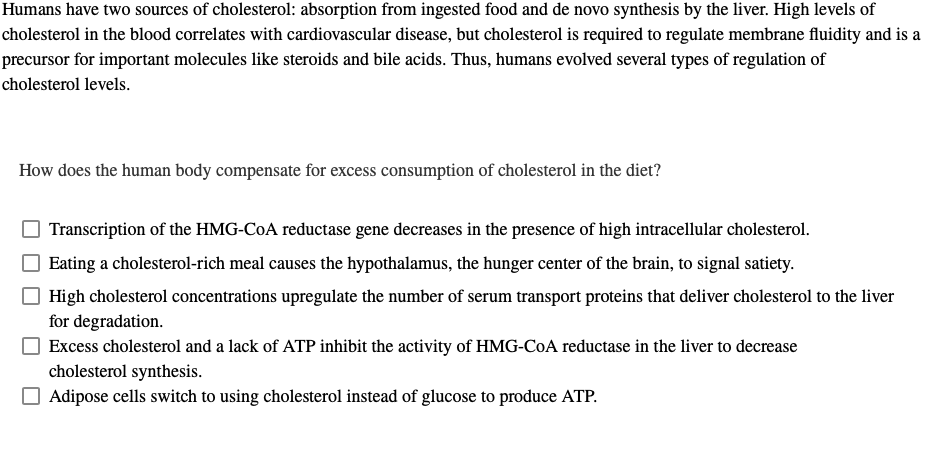Humans have two sources of cholesterol: absorption from ingested food and de novo synthesis by the liver. High levels of cholesterol in the blood correlates with cardiovascular disease, but cholesterol is required to regulate membrane fluidity and is a precursor for important molecules like steroids and bile acids. Thus, humans evolved several types of regulation of cholesterol levels. How does the human body compensate for excess consumption of cholesterol in the diet? Transcription of the HMG-CoA reductase gene decreases in the presence of high intracellular cholesterol. Eating a cholesterol-rich meal causes the hypothalamus, the hunger center of the brain, to signal satiety. High cholesterol concentrations upregulate the number of serum transport proteins that deliver cholesterol to the liver for degradation.
Gene Interactions
When the expression of a single trait is influenced by two or more different non-allelic genes, it is termed as genetic interaction. According to Mendel's law of inheritance, each gene functions in its own way and does not depend on the function of another gene, i.e., a single gene controls each of seven characteristics considered, but the complex contribution of many different genes determine many traits of an organism.
Gene Expression
Gene expression is a process by which the instructions present in deoxyribonucleic acid (DNA) are converted into useful molecules such as proteins, and functional messenger ribonucleic (mRNA) molecules in the case of non-protein-coding genes.

Trending now
This is a popular solution!
Step by step
Solved in 2 steps






